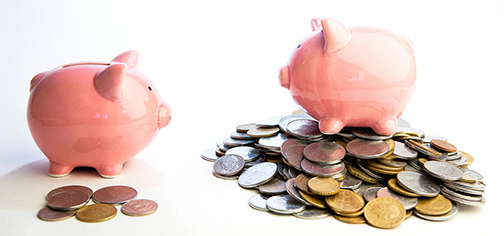Rich getting richer, poor getting poorer in Nevada
CARSON CITY — A new study on wages has revealed what some people have suspected all along: The rich in Nevada are getting richer and the poor poorer.
The Washington, D.C.-based Economic Policy Institute found that incomes earned by the top 1 percent in Nevada increased by 55.4 percent between 1979 and 2011, while the bottom 99 percent’s incomes dropped by 32.1 percent.
The institute, which calls itself a nonprofit, nonpartisan think tank that champions low- and middle-income workers, used Internal Revenue Service income data. It also adjusted incomes for inflation.
The period it analyzed includes the Great Recession, which nationally lasted between late 2007 and 2009 but in some ways remains in effect in Nevada, where 100,000-plus fewer people have jobs than before the recession.
The study found incomes of the bottom 99 percent in Nevada dropped by 6.7 percent between 2007 and 2009, nearly 10 times worse than the national 0.7 percent drop.
A Las Vegas-based conservative think tank, the Nevada Policy Research Institute, does not dispute the data used in the study but looked at similar statistics and came up with far different conclusions in its own income gap report, released Feb. 10.
The NPRI study showed significant income growth between 1979 and 2009 by the poorest fifth of the population, although growth for the richest 20 percent of the population was much higher.
The conservative group has become concerned that “the left” has an agenda to increase the federal minimum wage. The Economic Policy Institute study advocates a higher minimum wage as one of many steps to reduce the income gap.
Nevada becoming a poor state
The Economic Policy Institute found Nevada, Michigan, Wyoming and Alaska were the only states where incomes earned by the bottom 99 percent fell between 1979 and 2011. In 2011, the study found the top 1 percent in Nevada earned average incomes of $1,091,021, or 29.5 times the average of $36,975 earned by the bottom 99 percent.
The most disturbing statistic raised in the study might have been that incomes earned by all Nevadans increased by just 8.6 percent between 1979 and 2007, compared with 36.9 percent average growth for all Americans during the same period.
While the rich are getting richer, the Economic Policy Institute said in the “Increasingly Unequal States of America” report released Wednesday, the gap between the very rich and the vast majority of wage earners declined in every state but Alaska between 1928 and 1979.
“There is almost an adoration today for people of wealth,” said Mark Price of Keystone Research Center in Harrisburg, Pa., who co-authored the study. Keystone was created, according to its website, to discuss ways to achieve a more prosperous and equitable economy, according to its website. One business website describes it as a left-leaning think tank.
Price said there has been a “cultural change” in how people look at the wealthy over the years. In the 1970s, corporations were reluctant to grant bonuses to their chief officers, particularly if the company was not doing well. They also were more apt to grant wage increases to workers when productivity led to higher company profits.
“Today it does not raise an eyebrow,” Price said of multimillion-dollar bonuses.
Price said education, higher minimum wages, more opportunities for collective bargaining and increasing competition for jobs would help reduce the income gap. But he added that productivity in America has increased in the past 30 years, and worker wage increases do not reflect those gains. The very rich had a 70 percent income tax rate in the 1970s. Today it is about 40 percent, he added.
Jon Sasser, a legislative lobbyist who represents the Legal Aid Society in Clark County and Washoe Legal Services, both of which help the poor, said all social services agencies have experienced an increased demand for services as the economy deteriorated.
“The wage gap is widening,” he said. “It will widen even more (with) the failure to extend unemployment compensation (in Congress). Our taxes in Nevada are regressive. We rely on sales taxes which are disproportionately paid by the poor.”
















